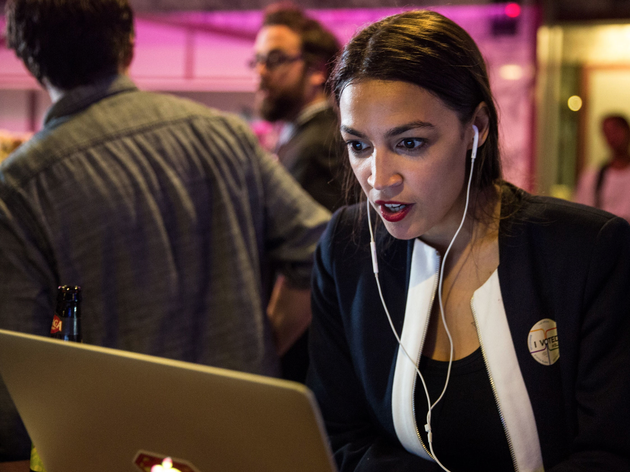 The "Prisoner's Dilemma" of American social media giants: content review is controversial, and "cross pollination" dilutes innovation
The "Prisoner's Dilemma" of American social media giants: content review is controversial, and "cross pollination" dilutes innovation American online social media has become a very mature market. Some social media applications and services have existed for more than 15 years, with millions of users. But now, these large social media companies are also facing thorny problems, of which the most prominent two are the huge controversy surrounding content review and the exhaustion of innovation ability.
1、 Huge controversy over content review
On October 28, three major social media Facebook , Google and Twitter The chief executive officer of. At the meeting, they all objected to the revocation of clause 230. This provision allows Internet technology companies to avoid relevant legal proceedings by not being responsible for the content published by users on their platforms.
Before the hearing, the written testimony of the above-mentioned chief executives had been made public. From these testimonies and related interviews, It can be found that CEOs have differences in dealing with many issues, including hate speech and groundless political accusations. They also have different views on how Congress should deal with the issue of Article 230. Obviously, these technology companies lack a unified pace, which may weaken their ability to resist criticism from both parties in Congress. On the eve of this year's presidential election, attacks and accusations from both parties have intensified.
Facebook CEO Zuckerberg has repeatedly said that his company hopes to play as little role as possible in formulating rules for content review, and he is also promoting federal regulation, expecting the federal government to develop clear content evaluation standards for Internet technology companies. Jack Dorsey, CEO of Twitter, wants to give users more control over content algorithms, so that they can better control what they see. Google CEO Pichai did not propose specific amendment measures in his testimony, on the contrary, he warned about the possible consequences of modifying Article 230. It is worth mentioning that Google has outlined some ideas on the so-called "intelligent supervision" of platform content. Kent Walker, Google's chief lawyer, said in a blog post in June 2019 that the government should clearly define what kind of online speech is legal and what kind of online speech is illegal. Walker also believes that, The rules of social networks are not applicable to all situations, such as search engines.

Among the three CEOs, Zuckerberg put forward specific suggestions for new content regulation, which may give Facebook a dominant position in terms of the revision of Article 230 in the future.
On other issues, such as visa and trade policies, the three Internet companies tend to act together. But in the past, they also had inconsistent steps.
In 2018, in order to support law enforcement authorities to crack down on online transactions, Facebook became the first large technology company to support the amendment of Article 230. Google once warned that modifying Article 230 might actually hinder efforts to crack down on sexual transactions. However, after the Internet Association, a technology trade group, gave up its opposition to amending Article 230, Google also changed its position.
In the years since then, people have become increasingly alert to the spread of extreme ideology on social networks. In this context, the three companies are trying to work together to develop industry standards for content review. In the mosque shooting in New Zealand last year, the killer broadcast the shooting live on Facebook. The tragedy prompted these technology companies to unite to prevent the spread of terrorism on the Internet.
According to insiders, in the second quarter of last year, some executives of Google, Facebook and Twitter proposed to expand the common software standards to identify and delete those tampered videos and news articles containing baseless allegations. However, this initiative was difficult to move forward and was resisted because some people worried about the negative perception from President Trump and Republicans.
More complicated is that these companies also have differences on what kind of restrictions to impose on online speech. For example, in 2019, the three companies had serious differences in dealing with the issue of false videos directed at Speaker Pelosi of the House of Representatives. Facebook has kept this fake video on its platform, while Google's YouTube has decided to delete it.
These companies have different attitudes and views on Article 230, which has provided many opportunities for attacks by both parties. Republicans may focus their criticism on accusing these companies of prejudice against conservatives, while Democrats may put pressure on other issues, such as accusing large technology companies of harming the offline news industry.
The following are the specific attitudes of the two social media giants to Article 230
Facebook
Since the 2016 US election, Zuckerberg has been dealing with the dissemination of false information. He promised to use more resources for content review, while defending Facebook's relevant policies on various occasions.
This summer, when Facebook decided not to delete President Trump's provocative posts, some employees protested against this. In addition, inspired by civil rights organizations, hundreds of advertisers also launched a boycott against Facebook.
Zuckerberg insisted that Facebook should not be "the arbiter of truth". He believes that private technology companies cannot bear such a heavy responsibility for defining the boundaries of freedom of expression. Facebook has set up an external monitoring committee to deal with controversial content, which can even overturn Facebook's own decision.
At the same time, Zuckerberg also said that Facebook is open to the revision of relevant laws. In his written testimony submitted to the Senate hearing, he said that Congress should "update" Article 230 to "ensure its operation as expected". He said: "I look forward to a meaningful dialogue on how to update this provision to address the problems we face today."
Facebook published a white paper in February this year. This document provides a window for understanding the company's attitude towards Article 230. The white paper proposed that the government should set a common threshold that technology companies must meet when reviewing harmful content, and set corresponding performance goals. According to the white paper, regulators should also define specific types of statements that need to be prohibited - even if they are not illegal, they must also be prohibited from appearing on online platforms.
Some experts said that, Facebook may be more willing to compromise on the amendment of Article 230, because the company is a giant with a lot of resources, easy to defend itself, and can avoid a large number of lawsuits caused by the weakening of Article 230. But yes Pinterest For smaller companies such as Etsy or Reddit, it is another matter - after the protection of Article 230 disappears or weakens, they may be difficult to get rid of the flood of lawsuits.
Twitter
Twitter has angered Republicans and Trump in recent months, because it has taken a more radical stance to mark or delete false information tweets that it believes are harmful to the general election voting. However, Twitter has taken a less tough attitude in combating the false information of COVID-19. Republicans strongly believe that Twitter's content censorship is biased against conservative voices.
In his written testimony, Twitter CEO Dorsey urged Congress to act with restraint. He warned that "comprehensive regulation may further consolidate the position of companies with huge market shares, which can easily mobilize additional resources to deal with these regulations."
Dorsey stressed that Twitter is taking measures to let users better control what they want to see on Twitter. He pointed out that in the future, users can filter content by selecting different algorithms (even third-party algorithms). Twitter has been testing a function called Birdwatch internally for several months. This feature makes it easier for users to report tweets with potential violations.
As for the amendment of Article 230, Dorsey did not express his views as clearly as Zuckerberg did.
2、 Social media innovation is dead
In addition to the controversial issue of platform content review, Internet users have to face another frustrating reality, which is The increasing homogenization of social media 。
In this regard, the latest example is the Fleets function recently launched by Twitter. On November 17, Twitter officially launched this new function to users. Although Twitter has publicized Fleets in a big way, the response of users to this new function is generally cold. The reason is simple: we already have similar functions in every application we use everyday.
Fleets can actually be seen as the Twitter version of LinkedIn Stories launched globally last month, while LinkedIn Stories is a similar version of YouTube Stories launched in 2017, and YouTube Stories is a similar version of WhatsApp Status and Facebook Stories launched earlier in the same year , the Instagram Stories launched in August 2016, and a little earlier Snap chat Stories, wait. In short, These social media applications are becoming increasingly homogeneous, and all applications are now copying each other.
Facebook's application and website family, including Facebook itself, WhatsApp and Instagram, dominate our lives. These applications of Facebook are gradually sharing each other's functions. This so-called "cross pollination" phenomenon has also spread to social media applications of different companies. These social media companies are increasingly reluctant to spend time on innovation, but simply copy and imitate the best features of competitors, so as to be able to get in touch with users with growing appetites for even a few minutes. A typical example is the video format of YouTube. Since YouTube increased the maximum length of videos to 15 minutes in 2010, the platform no longer focuses on short format videos. But now, short format videos similar to TikTok appear again on the YouTube platform.

In short, social media platforms are becoming more and more bloated, and they feel that they need to provide all functions for everyone. They fear that if they do not do so, they may lose in the fierce market competition. But in fact, this has also led to the gradual dilution of the characteristics of these platforms.
However, We don't need every application to be a super application.
The mutual copying and imitation of social media applications may originate from the concept of so-called "super applications". Super applications have brought a variety of different features under a single application framework, which has inspired many social media companies in Silicon Valley. However, what Silicon Valley has done is to simply repeat the content - as Hank Green, the TikTok content producer, said on Twitter, Fleets is just "another place to reprint my TikTok content".
Alexandra Ocasio Cortez, the Democratic representative, is very good at using social media platforms to promote political participation, but she does not think that the mutual imitation of applications will bring any obvious benefits.
When Facebook and LinkedIn are trying to expand their user base, Snapchat - an application that is often ridiculed for its uncertain future and has been sentenced to death for many times - continues to exist among its loyal users (mainly lively and changeable young users), because it provides something different from others.
Similarly, the reason why TikTok became a star application in 2020 is that it does not imitate each other like other applications. On the contrary, it provides users with something new. Now, TikTok still focuses on providing users with novel ideas, rather than trying to provide all the functions in an all-round way.
The most worrying thing about Twitter's launch of Fleets is that it is at the expense of more meaningful changes. Over the years, Twitter users have often complained that their accounts have been harassed. They have asked to be able to edit their own tweets and to take more responsibility for the content published on the platform.
The launch of Fleets gives Twitter users the ability to make Twitter disappear automatically after 24 hours, but it also allows bad people to use this function to harass and hide their tracks. Researchers have found a loophole that allows those blocked to directly contact those blocking them through Fleets. A terrorism researcher also expressed his concern that extremist content might be easier to spread through Fleets.
In short, by trying to become more like other social applications, Twitter not only ignored the original problems on its platform, but also introduced new problems, which made the user experience worse. ( Woodcutter wind)





























